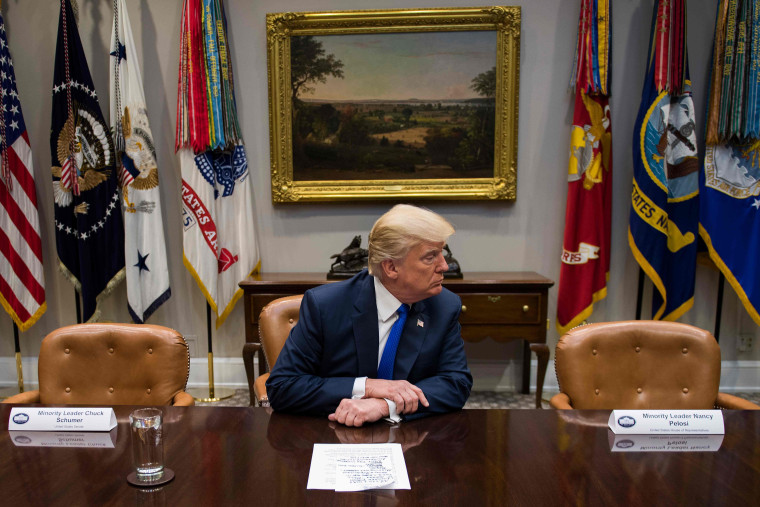The New York Times reported late last year that Donald Trump spends at least four hours a day watching television. The president soon after pushed back with one of the more amusing claims of his tenure.
"I do not watch much television," Trump said, adding, "I don't get to watch much television, primarily because of documents. I'm reading documents a lot."
If only that were true. The Washington Post reported overnight on the White House's plan for Trump's summit with Russian President Vladimir, which included giving the American leader plenty of documents -- which went unread.
Administration officials had hoped that maybe, just maybe, Monday's summit between President Trump and Russian President Vladmir Putin would end differently -- without a freewheeling 46-minute news conference in which Trump attacked his own FBI on foreign soil and warmly praised archrival Russia.Ahead of the meeting, staffers provided Trump with some 100 pages of briefing materials aimed at laying out a tough posture toward Putin, but the president ignored most of it, according to one person familiar with the discussions, who spoke on the condition of anonymity to disclose internal deliberations. Trump's remarks were "very much counter to the plan," the person said.
It's a bit like the "Do Not Congratulate" fiasco, but turned up to 11.
The Post's article added that in the lead-up to yesterday's meeting, White House officials repeatedly told U.S. allies "not to worry," because Trump wouldn't strike any specific deals or make any secret promises.
But our allies responded by saying they can't take such assurances seriously -- because administration officials "don't control the reality." That power, of course, is in the hands of the erratic American president who, as the world saw yesterday, is willing to side with a foreign adversary over his own country.
Indeed, NBC News reported the other day that after Trump took new steps to alienate our NATO allies last week, Pentagon officials went into "damage-control mode," trying to heal the wounds.
But the result is an unsustainable foreign policy in which the world can't be sure what the dominant global superpower intends to do. Is the position of the United States what its president says or what his administration's officials say?
It's why I tend to think the responsible thing for White House officials to do is quit as quickly as possible. Yes, they may be replaced by people who are worse, but if Trump isn't going to listen to his current team anyway, they might as well jolt the administration and get the political world's attention by resigning in disgust.
Trump likes to do as much as he can get away with. The sooner White House officials make clear to the president that he can't get away with what the world saw yesterday, the better.
